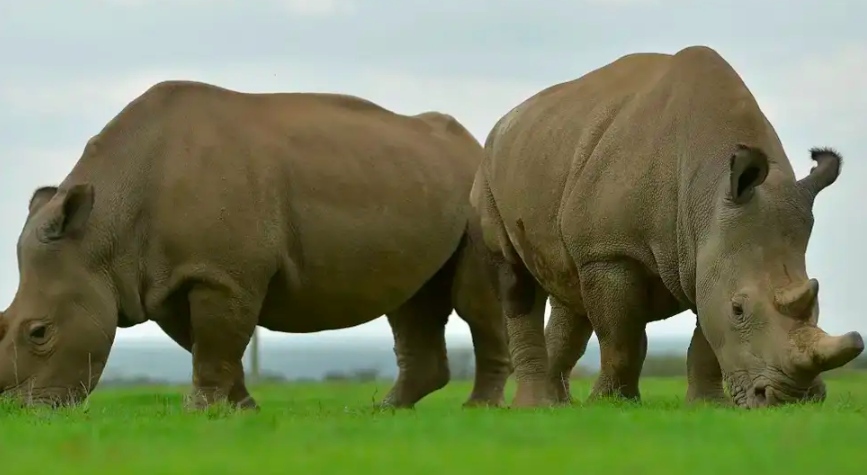Communities living with wildlife demand they be the rightful owners
African countries unite in asking for a new model for conservation, says Antoaneta Roussi

Communities living with wildlife are seeking a new model for conservation that places them as the primary guardians of the natural resources at their front door and allows them to reap the benefits generated from them.
In a declaration presented to heads of state, private investors and international organisations at the African Wildlife Economy Summit in Victoria Falls, Zimbabwe, 40 community groups from 12 African countries asked for a new agreement that places them as shareholders of the resources on their land. At present, communities shoulder the costs of living with wildlife, such as crop raids and sometimes human life, with little or no compensation.
With the challenges of poverty, inequality, climate change, and increasing land transformation, the group said that as the first line of defence in protecting natural resources and combatting illegal wildlife trade, they have a right to claim ownership and benefits.
“Noting increasing rural poverty across the continent, loss of wildlife and habitat and lack of inclusion of communities, our goal is to reset the agenda for natural resources management to turn wildlife into a rural economic engine and achieve security of rights and tenure,” the declaration said. “This is an invitation to heads of state and governments of Africa, the private sector and international organisations to work with us to allow our continent’s communities to achieve a new deal that will become a stronger foundation of Africa’s Wildlife Economy.”
People who live alongside wildlife have long criticised their exclusion from the decision-making around conservation, despite being the ones that experience the realities of living with wild animals every day. As the continent’s population expands, protected parks that do not benefit the people living next to them are becoming a target of debate.
Chief Fortune Charumbira, the Chiefs Council President of Zimbabwe said that until communities see the value of living with and conserving wildlife, human and wildlife conflict would continue at an unprecedented level.
“How many times have we formulated policies on wildlife by working with international players, without the villages themselves,” he said. “If the communities view animals as not theirs, the poaching and thieving will continue. If they see themselves as shareholders, they will protect those animals as they protect their cattle.”
Namibia, which is often cited as a good example of community-based natural resource management, has communal conservancies covering more than 14 per cent of the country that involve over 200,000 people and generate US$ 2.5 million every year, according to the International Institute for Environment and Development of the UK. In the process the country’s wildlife resources have recovered, while poaching and other illegal activities have decreased.
“The reality is that the fate of wildlife lies mainly in the hands of those who live with it daily,” said Maxwell Gomera, Director of the Biodiversity and Ecosystem Services Branch at the UN Environment Programme. “These people must have incentives if they are to live with dangerous animals. Conservation efforts that fail to acknowledge the rights of such people and help them to live safely alongside dangerous animals and become wildlife defenders force them and wildlife into a battle from which both emerge as losers.”
With the declaration, communities are asking governments, international organisations and the private sector to capitalise on indigenous knowledge, ensure community voices are reflected at all governance levels, promote investment in community owned wildlife projects and change the development model from aid to ownership.
“Communities are tired of benefitting from handouts, they want to learn to do the fishing,” said Edson Gandiwa, professor of Wildlife Conservation and Management at Chinhoyi University of Technology in Zimbabwe.
The African Wildlife Economy Summit 23-25 June was convened by the African Union and UN Environment with the help of international conservation charity Space for Giants, which The Independent supports in its conservation work.
Join our commenting forum
Join thought-provoking conversations, follow other Independent readers and see their replies
Comments